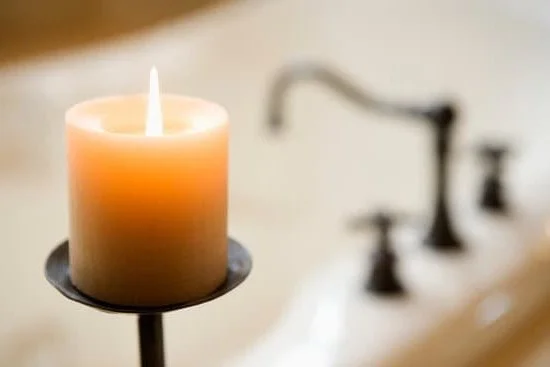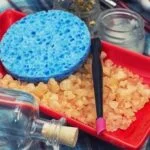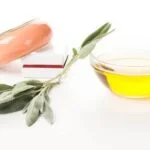Aromatherapy oils have gained significant popularity in recent years, as people seek natural alternatives for their hair care routines. But can these fragrant oils really be used on hair? In this article, we will delve into the world of aromatherapy oils and their potential benefits for hair health.
From moisturizing properties to promoting hair growth, we will explore how these oils may address common hair issues and improve overall hair health. However, it is important to consider the potential drawbacks and precautions before incorporating aromatherapy oils into your hair care regimen.
The concept of aromatherapy involves using essential oils extracted from plants to promote physical and psychological well-being. These oils are derived from various parts of the plants, such as leaves, flowers, or roots. They are highly concentrated and possess unique properties that can benefit our bodies in different ways. When it comes to hair care, aromatherapy oils have gained attention for their potential to nourish and enhance the health of our locks.
Understanding healthy hair is vital to effectively utilizing the benefits of aromatherapy oils. Our daily routines, environmental factors, and even diet can impact the condition of our hair. Dryness, dandruff, frizz – these are just a few common concerns many individuals face when it comes to maintaining healthy hair.
Fortunately, certain aromatherapy oils possess qualities that may help address these issues. From soothing dry scalps to taming unruly frizz, incorporating the right aromatherapy oil into your routine could provide a natural solution to your specific needs.
As we delve deeper into this topic throughout the article, we will discuss the specific benefits provided by various aromatherapy oils for hair care. We will also address popular options like lavender, rosemary, tea tree, and peppermint – each with their unique properties and advantages.
Additionally, we will guide you on how to choose the most suitable aromatherapy oil for your hair type and concerns, considering factors such as hair texture, oil properties, and personal preferences. By the end of this article, you will be equipped with the knowledge needed to harness the power of aromatherapy oils for healthy, lustrous hair.
What are Aromatherapy Oils?
Defining Aromatherapy Oils
Aromatherapy oils, also known as essential oils, are highly concentrated extracts derived from various parts of plants such as leaves, flowers, stems, and roots. These oils are obtained through methods like distillation or cold pressing, preserving the natural properties and scents of the plants they come from. Aromatherapy oils have been used for centuries in traditional medicine and beauty practices due to their therapeutic effects on the mind and body.
Aromatic Properties and Benefits
Each aromatherapy oil possesses its own unique combination of compounds that give it specific properties and benefits. For example, lavender oil is known for its soothing abilities and can promote relaxation, while rosemary oil has stimulating properties that may help with focus and concentration. Tea tree oil is famous for its antimicrobial properties which can aid in treating scalp infections or dandruff. From calming to invigorating scents, aromatherapy oils offer a broad range of natural benefits.
Aromatherapy oils have often been considered as a holistic approach to wellness due to their potential effects on emotional well-being. The inhalation of these oils may activate certain areas in the brain that can influence mood and reduce stress levels. Besides their aromatic attributes, aromatherapy oils also possess natural compounds that make them beneficial for hair health when applied topically.
Understanding Hair Health and Common Hair Issues
Maintaining healthy hair is important for many individuals, as it contributes to overall appearance and self-confidence. However, various factors such as environmental conditions, styling habits, and internal health can lead to common hair issues like dryness, dandruff, and frizz. In this section, we will delve into the importance of hair health and discuss these common hair issues in more detail. Furthermore, we will explore how the right aromatherapy oils may help address these concerns.
The Importance of Maintaining Healthy Hair
Before delving into specific hair issues and their remedies, it is crucial to understand the importance of maintaining healthy hair. Healthy hair not only looks aesthetically pleasing but also signifies strong strands that are less prone to damage. Proper hair care practices promote vitality, strength, and shine.
Common Hair Issues: Dryness, Dandruff, and Frizz
Dryness is one of the most pervasive concerns when it comes to hair health. Environmental factors such as sun exposure or excessive heat styling can strip moisture from the strands, leaving them dull and brittle. Additionally, using harsh shampoos or chemical treatments can exacerbate dryness.
Dandruff is another common issue that affects many people. Itchy scalp accompanied by flaky skin can be a result of various factors including dry scalp or an overgrowth of a yeast-like fungus called Malassezia.
Frizz is a frustrating concern for those with natural curls or wavy hair textures. It occurs when the cuticle layer on each strand lifts due to moisture imbalance in the air or excessive heat styling.
Addressing Hair Concerns with Aromatherapy Oils
Fortunately, aromatherapy oils have shown promise in addressing these common hair issues through their moisturizing properties and ability to restore balance to the scalp. For instance:
- Dryness: Aromatherapy oils like coconut oil, argan oil, and jojoba oil have deep moisturizing properties that can be beneficial for dry hair. These oils help nourish the hair strands, seal in moisture, and restore natural shine.
- Dandruff: Tea tree oil is known for its anti-fungal properties, making it a popular choice for addressing dandruff. Its ability to soothe the scalp and reduce flaking has been backed by scientific research.
- Frizz: Essential oils like lavender oil and rosemary oil can banish frizz by smoothing down the cuticle layer of each strand, preventing moisture from entering or exiting too rapidly.
By incorporating these aromatherapy oils into your hair care routine, you may be able to mitigate these common concerns and achieve healthier, more manageable hair. However, it’s important to note that individual results may vary and considering your specific hair type and concerns is key in selecting the right aromatherapy oil for optimal results.
How Do Aromatherapy Oils Benefit Hair?
Aromatherapy oils offer several benefits for hair health and can be a valuable addition to a hair care routine. These oils have moisturizing properties that help hydrate the hair and scalp, improving overall hair texture and reducing dryness. Additionally, they may promote hair growth by stimulating blood circulation in the scalp and providing essential nutrients to the hair follicles.
Scientific research supports the use of certain aromatherapy oils for hair care. For example, a study published in the Journal of Cosmetics investigated the effects of lavender oil on hair growth in mice. The study found that lavender oil increased the number of hair follicles and promoted faster hair growth compared to a control group.
Rosemary oil is another popular choice for promoting hair growth. A study published in Phytotherapy Research explored the effects of rosemary oil on people with pattern baldness. Participants who used rosemary oil experienced significant improvements in their hair thickness compared to those in the control group.
In addition to promoting hair growth, aromatherapy oils can also improve the overall quality of the hair. Some oils have anti-inflammatory properties that can reduce scalp itchiness and irritation, which are common issues often associated with dandruff. Tea tree oil, for example, has been shown to effectively reduce dandruff symptoms due to its antifungal properties.
To make full use of these benefits, it is important to properly incorporate aromatherapy oils into your hair care routine. This can include applying the oils directly onto the scalp through gentle massages or using them as ingredients in DIY masks or conditioners. It is recommended to follow guidelines and seek professional advice when necessary, especially if you have specific concerns or sensitivities.
Overall, harnessing the power of aromatherapy oils can greatly contribute to healthy and lustrous hair. With their moisturizing properties, potential for promoting hair growth, and ability to address common issues such as dryness and dandruff, these oils offer a natural and effective option for hair care. By choosing the right aromatherapy oil for your specific needs and following proper usage and precautions, you can experience the positive effects on your hair health.
| Aromatherapy Oil | Benefits |
|---|---|
| Lavender Oil | Promotes hair growth, reduces scalp inflammation, and improves overall hair texture |
| Rosemary Oil | Stimulates hair growth, improves hair thickness, and reduces scalp itchiness |
| Tea Tree Oil | Reduces dandruff symptoms, soothes an itchy scalp, and has antifungal properties |
| Peppermint Oil | Stimulates blood circulation in the scalp, promotes hair growth, and provides a cooling sensation |
Popular Aromatherapy Oils for Hair Care
When it comes to using aromatherapy oils on hair, there are a multitude of options to choose from. Each oil has its own unique properties and benefits that can contribute to healthier, lustrous locks. Here is a list of some popular aromatherapy oils used in hair care and their specific benefits:
- Lavender Oil: Known for its calming scent, lavender oil also provides numerous benefits for the hair. It has been found to help promote hair growth by increasing blood circulation to the scalp. Additionally, lavender oil can soothe an irritated scalp and reduce dandruff.
- Rosemary Oil: A common ingredient in many hair care products, rosemary oil is believed to stimulate hair follicles and prevent premature graying. It may also help improve circulation in the scalp and strengthen the hair strands.
- Tea Tree Oil: With its antimicrobial and antifungal properties, tea tree oil is highly effective in treating dandruff and dry scalp. It can also unclog hair follicles, promoting healthy hair growth.
- Peppermint Oil: Peppermint oil has a cooling effect on the scalp, helping to alleviate itchiness and inflammation. It can also stimulate blood flow to the scalp and boost hair growth.
- Ylang Ylang Oil: This floral-scented oil has been known to balance sebum production in the scalp, making it a great choice for those with oily or combination scalps. Ylang ylang oil can also reduce hair breakage and add shine.
- Chamomile Oil: Chamomile oil is excellent for soothing an irritated scalp or reducing inflammation caused by conditions like psoriasis or eczema. It can also enhance highlights in blonde or light-colored hair.
- Cedarwood Oil: Known as a natural insect repellent, cedarwood oil may help ward off pests such as lice or mites. It is also believed to promote hair growth and reduce hair loss.
- Jojoba Oil: While technically not an essential oil, jojoba oil is often used as a carrier oil for aromatherapy blends. It closely resembles the natural sebum produced by our scalp, making it ideal for moisturizing dry or damaged hair.
When choosing an aromatherapy oil for your hair care routine, it’s important to consider your specific needs and preferences. Experimenting with different oils will help you find the perfect match for your hair type and concerns.
Remember to always dilute essential oils properly before use, as they can be highly concentrated and potentially irritating to the skin. Patch testing on a small area of the skin is also recommended to check for any potential allergic reactions. If you have any existing scalp issues or allergies, it’s best to consult with a dermatologist or aromatherapist before incorporating new oils into your routine.
Incorporating popular aromatherapy oils into your hair care routine can provide numerous benefits and contribute to healthier, more vibrant hair. By understanding the properties and benefits of each oil, you can choose the ones that best suit your specific needs and achieve the beautiful locks you desire.
Choosing the Right Aromatherapy Oil for Your Hair
In order to effectively harness the benefits of aromatherapy oils for your hair, it is important to choose the right oil that suits your specific hair type and concerns. With a wide range of options available, selecting the most suitable aromatherapy oil may seem overwhelming at first. However, with a basic understanding of your own hair needs and the properties of different oils, you can make an informed decision.
- Consider Your Hair Texture: Different aromatherapy oils work better for specific hair textures. For example, individuals with dry or coarse hair may benefit from heavier oils such as coconut oil or argan oil, which provide deep moisture and nourishment. On the other hand, those with oily or fine hair may opt for lighter oils like jojoba oil or grapeseed oil, which won’t weigh down their locks.
- Analyze Oil Properties: Each aromatherapy oil offers unique properties that can cater to different hair concerns. Lavender oil, for instance, is renowned for its calming effects and ability to promote hair growth. Rosemary oil is often used to combat dandruff and stimulate circulation in the scalp. Tea tree oil has antifungal properties and can be beneficial for addressing scalp issues like itchiness or fungal infections.
- Personal Preferences: It’s also essential to take into account your personal preferences when selecting an aromatherapy oil for your hair care routine. The scent and overall experience are important factors in determining whether you will enjoy using a particular oil on your hair regularly. Experiment with different oils to find one that not only meets your hair needs but also resonates with you on a personal level.
By considering these factors – hair texture, oil properties, and personal preferences – you can narrow down the options and choose an aromatherapy oil that will best benefit your individual needs. Remember that what works well for others may not necessarily work for you, so it may take some trial and error to find the perfect match. Be open to experimenting and have fun finding the right aromatherapy oil for your hair care routine.
How to Use Aromatherapy Oils on Hair
Using aromatherapy oils on hair can be a delightful and effective addition to your hair care routine. By incorporating these oils into your regimen, you can experience their numerous benefits for your hair health. Here are step-by-step instructions on how to use aromatherapy oils on your hair:
Oil Application
- Start with clean, damp hair.
- Pour a few drops of your chosen aromatherapy oil onto your palms.
- Gently massage the oil into your scalp using circular motions.
- Continue applying the oil along the length of your hair, focusing on the ends.
- Leave the oil in for a few hours or overnight for deep conditioning, then rinse it out thoroughly.
Scalp Massages
- Take a small amount of your selected aromatherapy oil and warm it up between your hands.
- Section off your hair to expose different areas of the scalp.
- Apply gentle pressure with your fingertips and use circular motions to massage the oil into each section of the scalp.
- Continue this massaging technique for several minutes, stimulating blood circulation and allowing the oils to penetrate deeply.
- Leave the oil on for at least 30 minutes before washing it out.
Oil-infused Hair Masks
- In a bowl, mix together an appropriate amount of carrier oil (such as coconut or jojoba oil) with a few drops of your preferred aromatherapy oil(s).
- Apply this mixture generously all over damp, clean hair, ensuring every strand is coated from root to tip.
- Cover your head with a shower cap or towel to trap heat and enhance absorption.
- Leave the mask on for at least 20 minutes or overnight, depending on personal preference and time availability.
- Rinse thoroughly with water and shampoo as usual.
It is important to note that while these methods can be highly beneficial for most individuals, individual results may vary. It is always recommended to perform a patch test before applying any new aromatherapy oil directly onto your scalp or hair to check for potential allergic reactions.
Precautions and Considerations
While aromatherapy oils can provide numerous benefits for hair, it is important to exercise caution and take certain precautions when incorporating them into your hair care routine. Here are some key considerations to keep in mind:
- Patch Testing: Before applying any aromatherapy oil directly to your scalp or hair, it is crucial to conduct a patch test. This involves applying a small amount of diluted oil on a small area of your skin, typically the forearm or behind the ear, and observing for any adverse reactions such as redness, itching, or irritation. If you experience any negative reactions, it is best to avoid using that specific oil.
- Dilution: Aromatherapy oils are highly concentrated substances and can potentially cause skin irritation if used in their undiluted form. It is therefore recommended to dilute the oils with a carrier oil, such as coconut oil or jojoba oil, before applying them to your hair or scalp.
The ratio of dilution will depend on the specific oil and your hair’s sensitivity – a general guideline is to use 3-5 drops of essential oil per tablespoon of carrier oil. - Allergic Reactions: Some individuals may have allergies or sensitivities to certain aromatherapy oils. It is essential to be aware of any known allergies you have before using these oils on your hair. If you have a history of skin allergies or sensitive skin, it may be wise to consult with a dermatologist or aromatherapist before trying out new oils.
- Moderation: While aromatherapy oils offer several benefits for hair health, excessive use or application can have adverse effects. Using too much oil can weigh down the hair, leaving it oily and greasy-looking. It’s best to start with small amounts and gradually increase if necessary.
- Professional Guidance: If you are unsure about which aromatherapy oils would be best for your specific hair type or if you have any underlying scalp conditions, it is advisable to seek professional guidance. A trained aromatherapist or hair care specialist can provide personalized recommendations based on your individual needs.
Remember, everyone’s hair is unique, and what works for one person may not work for another. Experimenting and finding the perfect oils for your hair care routine may require some trial and error. By following these precautions and considerations, you can harness the power of aromatherapy oils safely and effectively, helping to achieve healthy, lustrous hair.
Conclusion
In conclusion, the use of aromatherapy oils on hair can be a beneficial addition to one’s hair care routine. The potential benefits of these oils include moisturizing properties, improved hair texture, and even potential promotion of hair growth. By understanding the specific needs and concerns of their hair, individuals can choose the most suitable aromatherapy oil to address their unique issues.
Throughout this article, we have explored what aromatherapy oils are and how they are derived from natural plant sources. We have also delved into the importance of maintaining healthy hair and discussed common issues such as dryness, dandruff, and frizz that may be alleviated with the use of aromatherapy oils.
It is crucial for readers to take precautions when using aromatherapy oils on their hair. Patch testing, dilution, and seeking professional guidance if necessary are all important considerations to ensure safety and avoid potential allergic reactions.
Frequently Asked Questions
Can you apply essential oils directly to hair?
Essential oils can be applied directly to the hair, but caution is advised. It is important to dilute the essential oil with a carrier oil, such as coconut or jojoba oil, before applying it to the hair and scalp. This helps prevent any potential irritation or sensitivity that may occur from using undiluted essential oils.
Additionally, it is recommended to do a patch test prior to applying essential oils to the hair to ensure there are no adverse reactions. Overall, using essential oils on the hair can provide various benefits such as promoting healthy hair growth, improving scalp conditions, and adding shine and moisture.
Can I use aromatherapy rosemary oil on my hair?
Yes, aromatherapy rosemary oil can be used on the hair. Rosemary oil is known for its stimulating properties that can help improve blood circulation in the scalp, thereby promoting hair growth and reducing hair loss. When using aromatherapy rosemary oil on the hair, it is important to mix a few drops of it with a carrier oil before applying it evenly onto the scalp and massaging gently.
This allows for better absorption of the oil into the scalp and encourages its beneficial effects. Regular use of aromatherapy rosemary oil on the hair can contribute to healthier and stronger locks.
Can I use aromatherapy oils on my skin?
Aromatherapy oils can indeed be used on the skin; however, caution must be exercised when doing so. Some essential oils may cause skin irritation or allergic reactions if not diluted properly or used in excessive amounts. It is crucial to dilute essential oils with a suitable carrier oil before applying them to the skin as this helps prevent any potential adverse effects.
Additionally, certain essential oils are more skin-friendly than others – lavender and tea tree oils are examples of relatively safe options for direct application on the skin when properly diluted. It is advisable to perform a patch test prior to using any new aromatherapy oil on your skin in order to check for any specific sensitivities you may have.

Are you looking for a natural way to improve your health and wellbeing?
If so, aromatherapy may be the answer for you.





